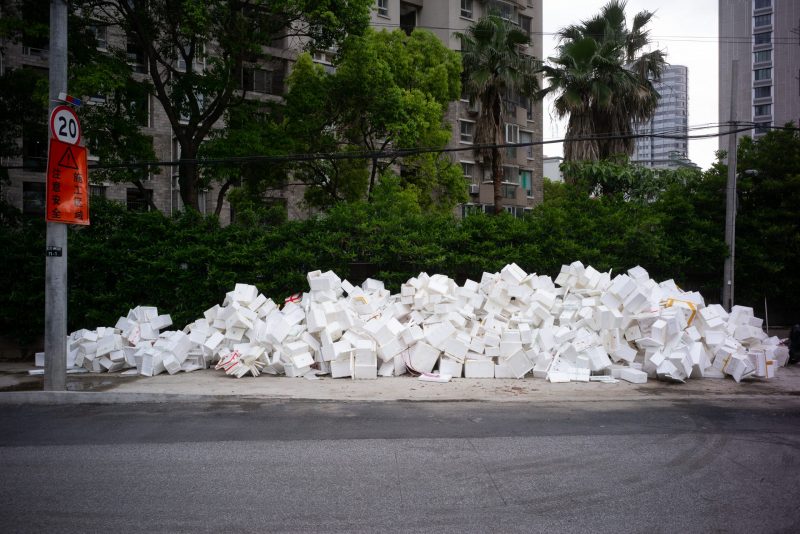Shanghai Lockdown: A photo-diary
Fears of a Covid-19 wave gave rise to a shock lockdown in Shanghai on 1st April 2022. Residents were almost immediately confined to their compounds: the merest warning and no time to prepare. China’s most populous city suddenly removed everyone from the street. Shanghai became transformed from one of the world’s most liveable cities to an empty shell. Some of the most lively streets in the most populous city in China became deserted.
It has forced the public to regroup around their residential compounds in order to coordinate supplies and to purchase food parcels. Essential supplies for survival. These lifeline deliveries arrived in thousands and thousands of white polystyrene boxes that were placed on the side of road for collection, while the used boxes piled up outside the gates to be collected for the next time.
These evocative photos by Chinese photographer, Zhu Runzi conjure up the changed situation in Shanghai; from one of the most dynamic cities into a ghost-town. From a bustling streetscape into a mountain of used, discarded boxes.
Scroll down to see his images, as we wish the people of Shanghai all the very best for a safe and speedy return to normality!

Remnants of bulk deliveries, shared amongst residents

Cardboard and Styrofoam delivery boxes discarded after use.

Essential plastics needed to keep communities going.

Food resources delivered in white boxes to lockdown communities for distribution.

Jiujiang Road

Guangxi North Road

Nanjing West Road

Yan’an West Road

Xinzha Road
Photographer: Zhu Runzi
Camera: Leica m240p
Lens: Summaron 28mm 5.6m
Instagram: https://www.instagram.com/zhu_runzi/
Web: https://www.fu-photography.com/
NOTE: See Zhu Runzi’s previous work here: Down and Out in Manchester
.






